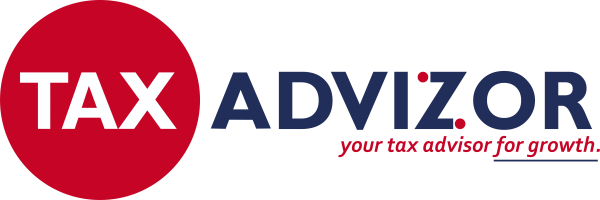Employee Provident Fund
When to Get PF Registration?
Employers in India are required to obtain Provident Fund (PF) registration when they meet certain conditions based on the size of their workforce and other regulatory criteria. Here are the key scenarios when the PF registration process becomes necessary:
- Lowest Price Guarantee
- Quick and Hassle - Free Process
- Free Expert assitant for lifetime
- Incorporation Certificate in 10 Days

Register EPF Today
Today's Offer
Employee Provident Fund Overview
The Employee Provident Fund (EPF) is a government-mandated savings scheme designed to provide financial security and retirement benefits to employees. Both employees and employers contribute a fixed percentage of the employee’s basic salary and dearness allowance to the fund. Managed by the Employee Provident Fund Organization (EPFO), this scheme ensures employees accumulate savings throughout their working years. EPF offers tax benefits and pays interest on the accumulated amount. Employees can withdraw the funds upon retirement, after a specific period of unemployment, or under certain conditions like medical emergencies or home purchases, making it a vital tool for financial planning.
Role and Functions of EPFO
EPFO's primary role is to manage provident funds, pension funds, and insurance schemes for millions of employees. It oversees contributions from both employers and employees under the Miscellaneous Provisions Act, ensuring that each employee has an EPF account where their savings accumulate over time. EPFO also helps maintain the Universal Account Number (UAN), enabling employees to manage their PF accounts across multiple jobs.
Importance of Provident Fund
The Provident Fund (PF), especially the Employee Provident Fund (EPF), is a crucial financial tool for employees in India. Here’s why it’s important:
Long-Term Savings:
The PF serves as a long-term savings plan that allows employees to accumulate a substantial fund over time. With regular contributions from both employers and employees, the EPF account builds up financial reserves, ensuring future financial security.
Financial Security After Retirement:
The primary goal of the EPF scheme is to provide employees with a secure financial cushion after retirement. It ensures that employees have a Provident Fund account to support their basic needs, helping them maintain their lifestyle post-retirement.
Employer Contributions:
Employers also contribute a matching amount to the PF account, increasing the total savings for the employee. These employer contributions make the EPF an even more attractive savings option, boosting long-term financial security.
Interest Earnings:
The money accumulated in the EPF account earns interest, which further enhances the savings. The interest rate offered by the EPF is generally competitive, making it a smart choice for accumulating savings over the years.
Tax Benefits:
Contributions to the EPF provide tax benefits under Section 80C of the Income Tax Act. Employees can claim deductions on their contributions, reducing their tax liability while building a robust retirement fund.
Emergency Fund:
The EPF serves as a safety net during emergencies. Employees can make partial withdrawals for urgent needs, such as medical expenses, home loans, or other major life events, giving them financial flexibility when needed.
Government Support:
The Employees’ Provident Fund Organisation (EPFO), under the Ministry of Labour, oversees the scheme, ensuring government-backed security. This mandate ensures that the PF scheme plays a vital role in India’s social security framework, safeguarding the financial future of workers.
Supporting Documents for PF Registration:
The PF registration process requires key documents, including a PAN card, Digital Signature, bank details, and a cancelled cheque. Employers must also submit proof of Company Registration, the number of employees, and other required documents for Establishment Registration.
Flexibility and Accessibility:
Employees can easily track their PF balance or check their claim status via the EPFO portal or the Unified Portal. Online services provide convenient access to PF withdrawal and other features, making it accessible to all.
The EPF is an integral part of India’s social security system, providing a reliable, government-supported savings scheme that helps employees achieve financial security and retirement benefits. It plays a key role in securing the future of workers in India.
Documents Required for PF Registration
To register for the Employee Provident Fund (EPF), you need specific documents depending on your type of business. Here’s a simple list:
General Documents for Everyone
- PAN Card:
- Identity Proof:
- Address Proof:
For Proprietorships
- Proprietor’s Identity and Address Proof:
- Business Registration Certificate:
For Partnership Firms / LLP / Companies
- Partnership Deed or LLP Agreement:
- Board Resolution for PF Registration:
- Certificate of Incorporation:
For Societies/Trusts
- Registration Certificate:
- Trust Deed:
- Trustee ID and Address Proof:
Extra Information Needed
- Business Type:
- Business Nature:
- Company Information:
- Incorporation Date:
- Office Locations:
- Bank Account Information:
- Employee Count:
- Employee Basics:
- Employee Salaries:
FAQ ON EPF REGISTRATION
Employers with 20 or more employees must register under the Employee Provident Fund (EPF) scheme. However, organizations with fewer employees can voluntarily opt for EPF registration.
Employers can register for EPF online through the EPFO portal by providing business details, employee information, and requisite documents such as PAN, proof of address, and incorporation certificates.
Key documents include:
- Employer’s PAN
- Address proof of the establishment
- Certificate of incorporation/partnership deed
- Employee details (name, salary, etc.).
Employees earning up to ₹15,000 per month are mandatorily covered. Higher-salaried employees can opt-in with employer approval.
- No, employees have a single Universal Account Number (UAN), which consolidates all EPF contributions across jobs.
Employers must register within one month of becoming eligible under the scheme to avoid penalties
Yes, non-compliance can lead to penalties, including fines or imprisonment, as per the EPF Act.
Employees can check their UAN activation and account details on the EPFO portal.
If you need further details or assistance with EPF registration, feel free to ask!

